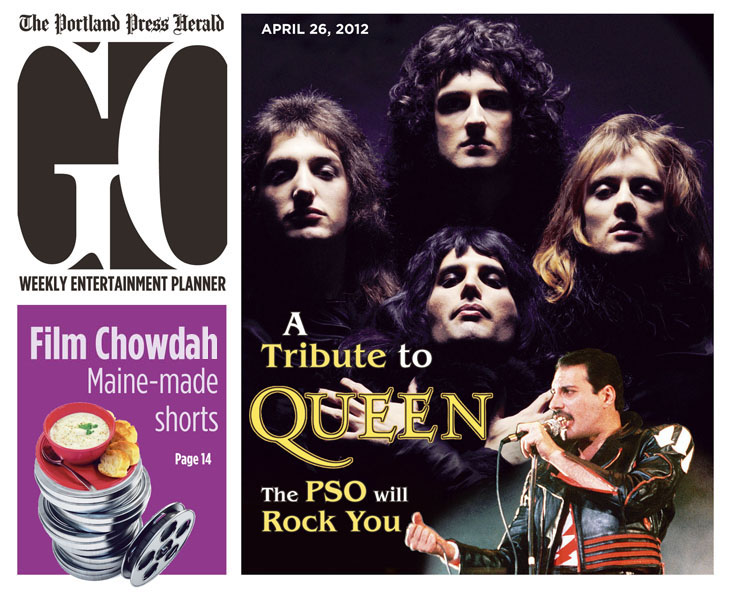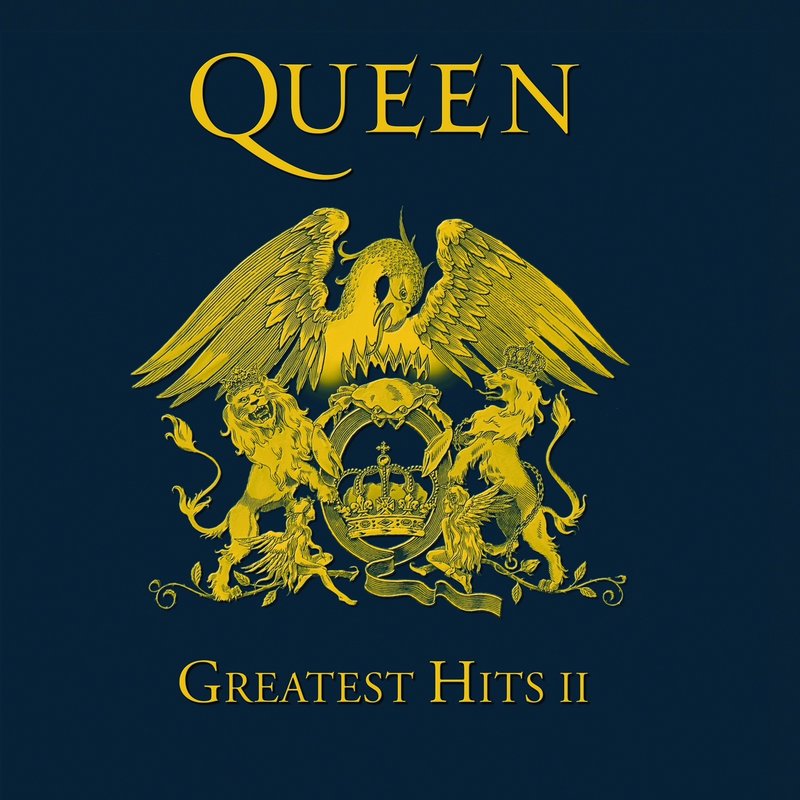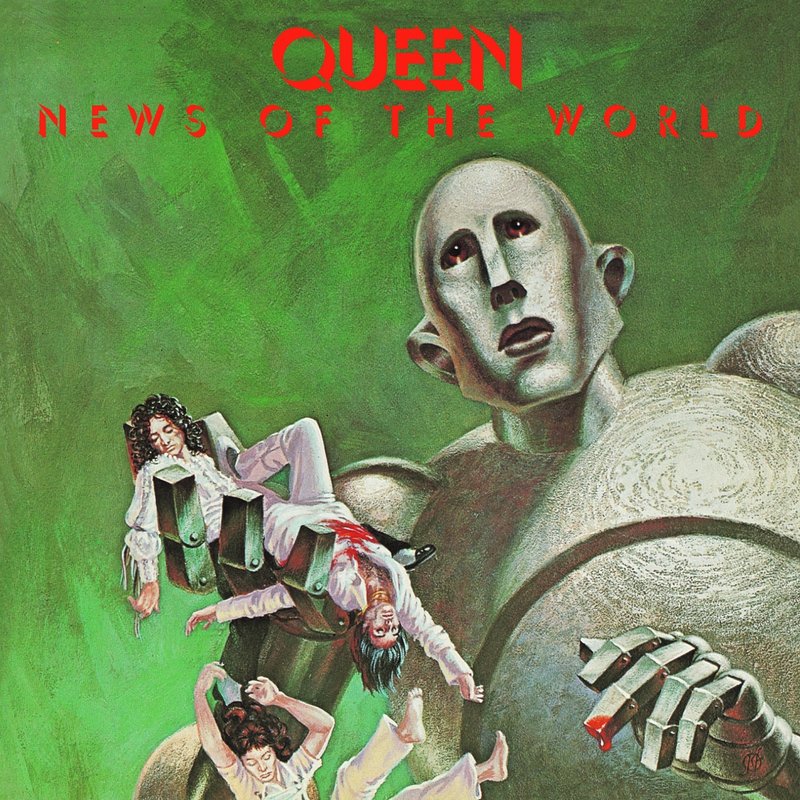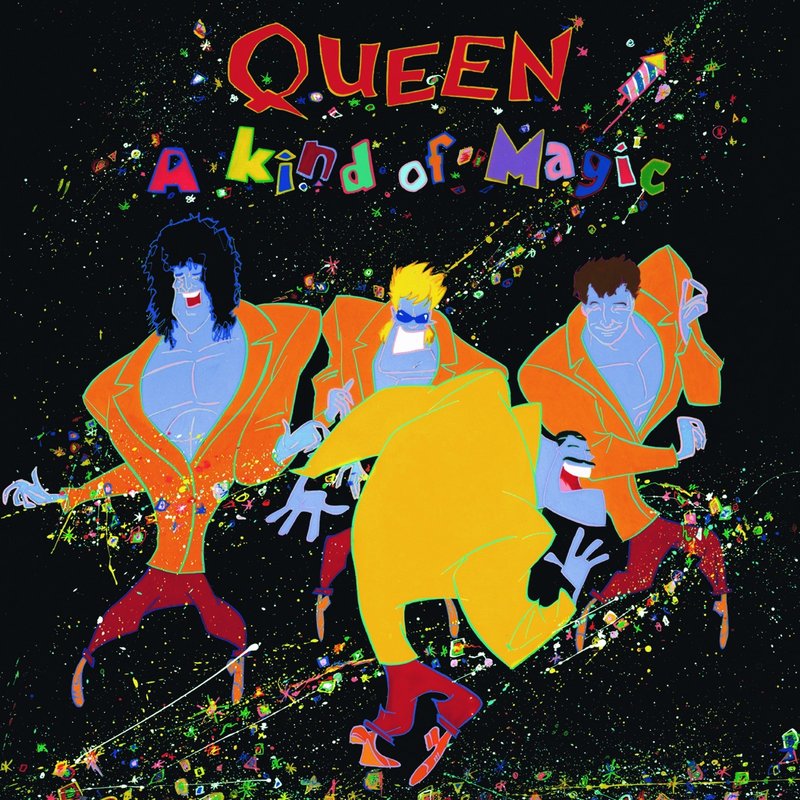Sean Slaughter thinks there are a couple of key reasons Queen is considered rock royalty, and why the band’s music is still wildly popular more than 40 years since its formation.
The first, says Slaughter, lead singer for the Portland rock band Clubber Lang, is that Queen’s music stands the test of time, from the theatrical flourish of “Bohemian Rhapsody” to the techno-pop sounds of “Under Pressure.”
But he also thinks the members of Queen are extraordinarily savvy business people who understood their audience and what will engage music fans. Slaughter got to know about this firsthand last year when he was one of nine finalists vying to become the vocalist of a tribute band called The Queen Extravaganza, which was hand-picked by Queen drummer Roger Taylor.
When Slaughter was in Los Angeles for the contest last December, he met Taylor (who, along with guitarist Brian May, makes up the current incarnation of the band), talked to lots of people close to Queen, and saw a documentary on the band.
He was surprised to learn, for instance, that the band wrote and recorded “We Will Rock You” because they thought fans at English soccer matches would want to clap and stomp along to music during games, especially if their team was not winning. They were right — today, that tune is a staple at sporting events around the world.
And the fact that Taylor was hand-picking a tribute band — deciding who should be out there doing Queen tunes instead of just letting it happen — showed his marketing prowess as well.
“He came in and told us, ‘We’re too old, half our band is gone, but there’s still a demand for this among younger people, so we want to give them a show,”‘ Slaughter recalled. “So he basically gave lots of people like me a shot at this.”
Slaughter didn’t win a spot in the tribute band, but wants to see The Queen Extravaganza when it plays the House of Blues in Boston on June 11. And he’ll definitely see one of the two performances of Queen music scheduled for this weekend by the Portland Symphony Orchestra at Merrill Auditorium in Portland. (For more information on the PSO shows, see page E19.)
RE-MASTERING THE MASTERS
Another Mainer with firsthand knowledge of Queen’s musical power and pop-culture status is Bob Ludwig, head of Gateway Mastering Studios in Portland.
Ludwig is a legend in the field of mastering (the process of making the final sound adjustments to recorded music), and was picked by Queen to remaster the band’s 15 studio albums so they could be re-issued for Queen’s 40th anniversary in 2011. He started remastering “A Night at the Opera” in 2005, and did most of the other albums between 2009 and 2011.
To make the sound as good and true as possible, Ludwig used the same type of European recording equipment employed when the albums were first recorded. He said European “recording heads” — what the audio tape runs through — are a different size than those in America. “With this, you record on more of the tape, so we wanted that same sound,” said Ludwig.
While remastering, Ludwig sent digital files of what he was working on to the band and its team for reviews. “Those guys went through everything with a fine-tooth comb,” he said.
So after listening to all 15 albums with his best listening ears on, does Ludwig have an opinion as to Queen’s staying power?
“I was mostly a casual Queen fan, so there was a lot of stuff in their catalog I had never heard before. On hearing all of it together, I thought that everything they did was pretty amazing,” said Ludwig, who has also remastered album catalogs for The Rolling Stones and John Mellencamp.
Ludwig said there were some emotionally powerful moments for him while working on the remastering, from hearing stuff he’d never heard before to listening to vocals that lead singer Freddie Mercury laid down near the end of his life. Mercury died in 1991 of bronchopneumonia, a complication of AIDS.
“Freddie knew he was dying, and he did those vocals knowing the band would have to finish them up for him,” said Ludwig.
IN THE BEGINNING
Queen formed in London in 1971 with Mercury, May, Taylor and bassist John Deacon. The band was originally influenced by progressive rock, but a few years into recording, they were turning out radio-friendly rock such as “Bohemian Rhapsody,” “Killer Queen” and “Keep Yourself Alive.” All of these were theatrical productions, and featured vocal gymnastics by Mercury and the rest of the band.
The album “A Night at the Opera” (1975) began a decade-long hit streak for Queen that included “We Are The Champions/We Will Rock You,” which is played at virtually every kind of sporting event today, from high school basketball to NFL football.
The band’s hitmaking prowess began to fade in the mid-’80s in the States, but after Mercury’s death in 1991, its back catalog returned to the charts in a big way thanks to exposure in the film “Wayne’s World” and a 1992 tribute concert for Mercury containing superstar renditions of classic songs — most notably George Michaels’ performance of “Somebody to Love” with the surviving members of Queen, which hit No. 30 on the Billboard Hot 100.
Today, Queen’s music can be found all over the pop-culture landscape, from television shows like “Glee” and “American Idol” to “We Will Rock You: The Musical,” a “Mamma Mia!”-style show built around the band’s hits. And the songs’ over-the-top productions and arrangements make them tailor-made for symphonic renditions like that of the PSO.
Portland rock radio host Mark Curdo of WCYY (94.3 FM) says Queen’s music lives on today because Queen changed what it meant to be a rock band. Curdo thinks May’s guitar style, Taylor’s drumming and Mercury’s skill and charisma at being a frontman raised the level of musicianship in rock, and challenged other bands to be better.
“To me, Queen elevated the game of being a rock band. They were so much more. They had great songs and great production, but they made rock music bigger than it had ever been,” said Curdo. “The pageantry and excellence in musicianship Queen brought to rock music will influence artists forever.”
Forever’s a long time, but we’re already at 40 years and counting.
Staff Writer Ray Routhier can be contacted at 791-6454 or at:
rrouthier@pressherald.com
Twitter: RayRouthier
Send questions/comments to the editors.








Success. Please wait for the page to reload. If the page does not reload within 5 seconds, please refresh the page.
Enter your email and password to access comments.
Hi, to comment on stories you must . This profile is in addition to your subscription and website login.
Already have a commenting profile? .
Invalid username/password.
Please check your email to confirm and complete your registration.
Only subscribers are eligible to post comments. Please subscribe or login first for digital access. Here’s why.
Use the form below to reset your password. When you've submitted your account email, we will send an email with a reset code.